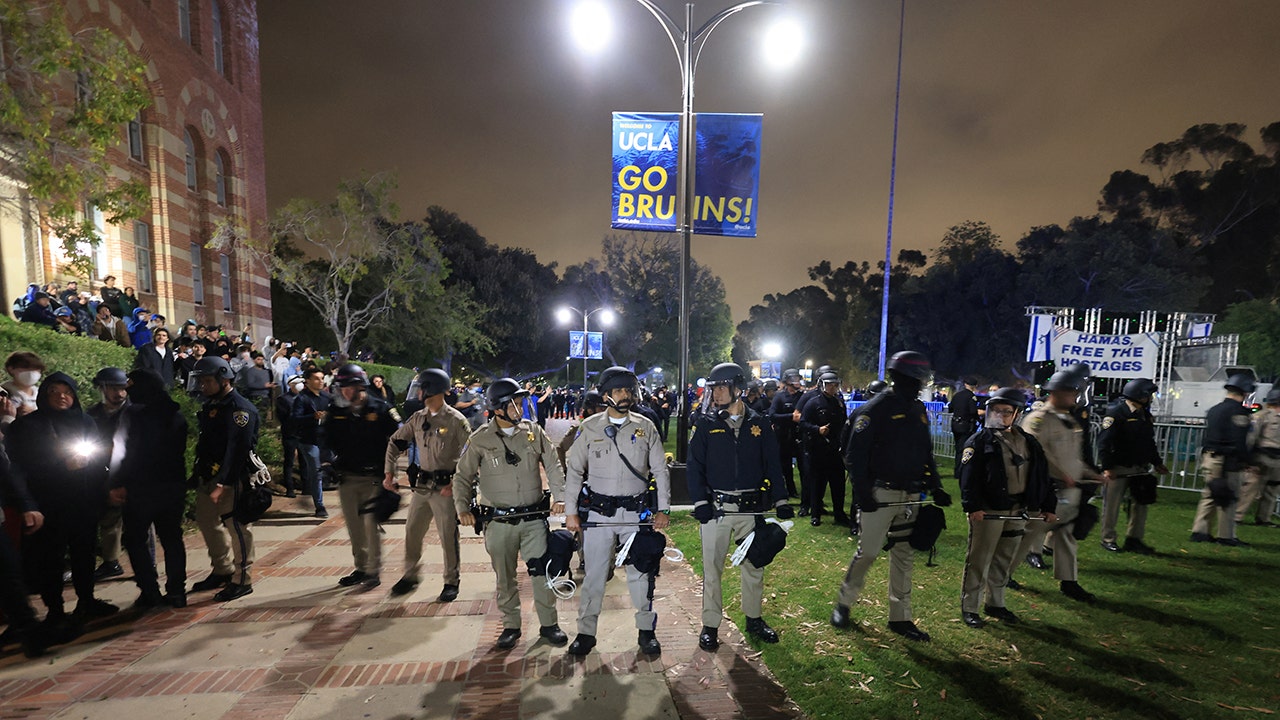Justice Samuel Alito is right.
Not about the Constitution or the use of history or whether Donald Trump has total immunity for crimes committed in office. No, Justice Alito is right about the fact of unresolvable conflict in American political life.
As he told Lauren Windsor, a liberal documentary filmmaker who surreptitiously recorded their conversation at a dinner held by the Supreme Court Historical Society, “One side or the other is going to win.” He continued, “There can be a way of working, a way of living together peacefully, but it’s difficult, you know, because there are differences on fundamental things that really can’t be compromised. They really can’t be compromised. So it’s not like you are going to split the difference.”
It is clear, from both his rhetoric and his jurisprudence, that Alito means the culture war. In a 2020 keynote to a gathering of the Federalist Society, for example, the justice bemoaned changing attitudes on same-sex marriage. “You can’t say that marriage is the union between one man and one woman,” Alito said. “Until very recently, that’s what the vast majority of Americans thought. Now it’s considered bigotry.”
In a 2022 address delivered in Rome for the Notre Dame Law School’s Religious Liberty Initiative, Alito warned, “Religious liberty is under attack in many places because it is dangerous to those who want to hold complete power.” Later, in the same speech, he mocked foreign critics of his decision in Dobbs v. Jackson Women’s Health Organization, which overturned Roe v. Wade and authorized states to pass draconian (and sometimes deadly) restrictions on abortion and bodily autonomy.
And in May, Alito issued a similar warning, telling the graduating class at the Franciscan University of Steubenville that freedom of religion is “imperiled.” “When you venture out into the world, you may well find yourself in a job or community or a social setting when you will be pressured to endorse ideas you don’t believe, or to abandon core beliefs,” he said. “It will be up to you to stand firm.”
Alito’s vision of nearly tyrannical religious intolerance does not seem to correspond to the reality of a country where three-quarters of Americans claim one religious affiliation or another, where a vast majority of those identify as Christian, and where profession of religious belief is, in most places, a de facto requirement for public office.
Still, there is a fundamental conflict in this country. But it’s not the one Alito imagines. Instead, it is a conflict between those who hope to preserve and expand American democracy and those who aim to suffocate it.
There is Trump, of course, who is running his third campaign for the White House as an unabashed authoritarian. He has promised revenge and retribution for every effort, as halting as it has been, to hold him accountable for his criminal behavior, up to and including his effort to overturn the results of the last presidential election. And he is backed by a cadre of apparatchiks ready and eager to impose their autocratic vision on the entire country.
Among the most radical is Russ Vought, who served as budget chief under Trump in a tenure that culminated in an attempt to strip Civil Service protections from tens of thousands of federal employees so that Trump could replace them with loyalists. In a second term, Vought hopes to follow through and stock the federal bureaucracy with, as Beth Reinhard reports for The Washington Post, “hard-core disciples who would wage culture wars on abortion and immigration.”
Convinced that the United States is in a “post-constitutional” moment where he and like-minded ideologues must subvert the political order so that they can save it, Vought wants to revive the president’s power to “impound” congressional appropriations, a strategy that was outlawed by Congress in the wake of the Nixon administration. He also, like Trump, wants to use the Insurrection Act to suppress protest and domestic opposition with the military. Vought sees a future of Anglo-Protestant supremacy under the “original” Constitution.
The effort to turn the national government against American democracy is mirrored, at the state level, by the effort to narrow the avenues of political dissent and electoral competition.
In states where Republicans have gerrymandered themselves into nearly impenetrable legislative majorities, they have also taken steps to try to close the paths the broad public might use to see its views honored in government. In Arizona, for instance, Republicans have, as the news site Bolts put it, “placed a measure on the November ballot that would severely restrict direct democracy in Arizona by imposing strict geographic requirements on where organizers must gather signatures.”
This is in response to an initiative that, if successful, will write abortion rights into Arizona state law, circumventing the anti-abortion Republican-led State Legislature. Republicans in other states have made similar efforts to restrict direct democracy in the face of publics that aren’t aligned with the most doctrinaire conservative ideologues.
The Texas Republican Party has gone a step further than Arizona’s, or any other, in its hostility to democracy. Last month, delegates to the state party convention approved a platform that would effectively require a kind of electoral college for statewide elections. To win the governor’s mansion, a candidate would need to carry a majority of the Texas’ 254 counties. Democrats, concentrated in the state’s major cities, could never win, no matter the majority they scored at the polls. Republicans, who dominate the state’s vast rural expanse, would govern in perpetuity.
Conservative Republicans, who have embraced “stop the steal” and are already casting doubt on any outcome short of a Trump victory in November, do not accept the legitimacy of their Democratic opponents. They believe that they, and they alone, have the right to govern. And they are working, from the bottom up and the top down, to limit as much as possible the right of the people to choose their leaders.
Justice Alito has his hands in this effort from his perch on the Supreme Court. (Just a few weeks ago he wrote the majority opinion upholding a de facto racial gerrymander in South Carolina.) And so again, he is right. There are irreconcilable conflicts and “differences on fundamental things that really can’t be compromised.” And the most fundamental thing on which there cannot be compromise is the question of American democracy. Will the Republic stand, or will we fall into a future of minority rule?






